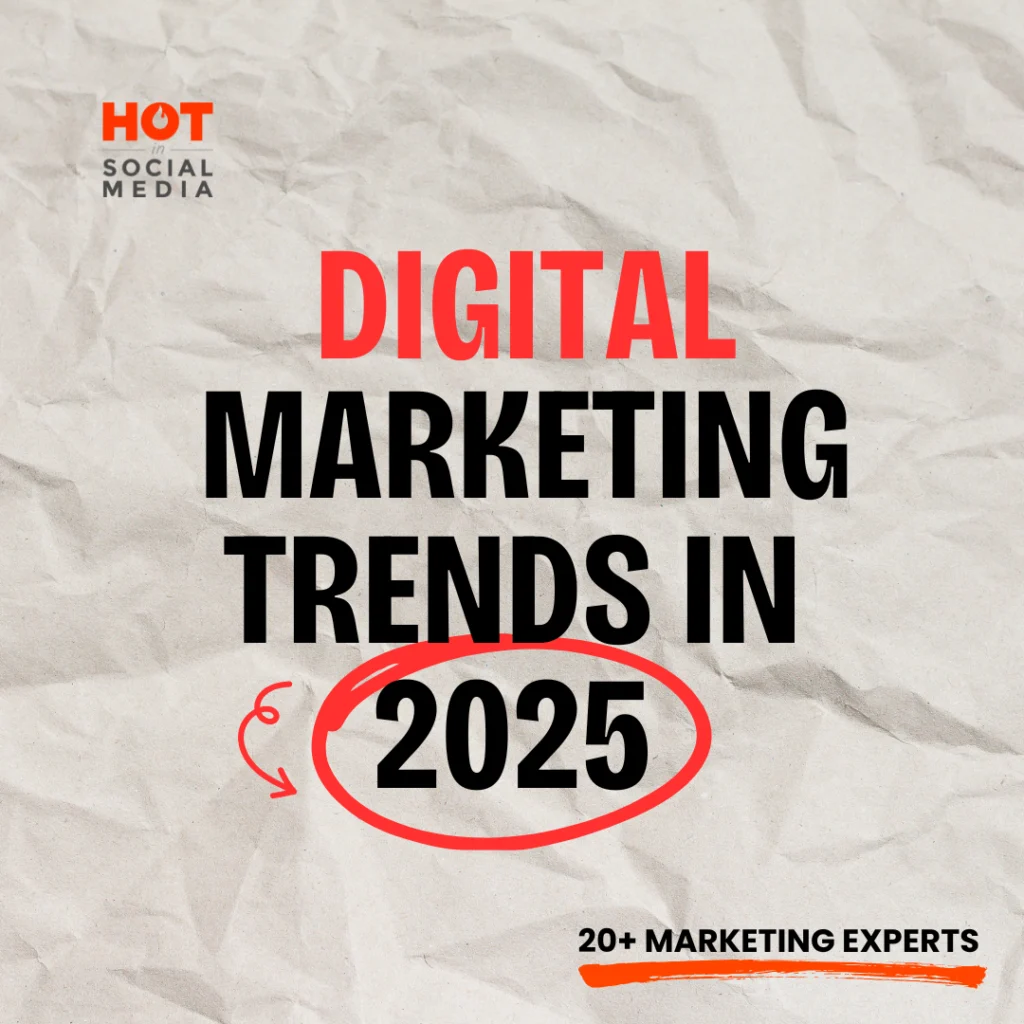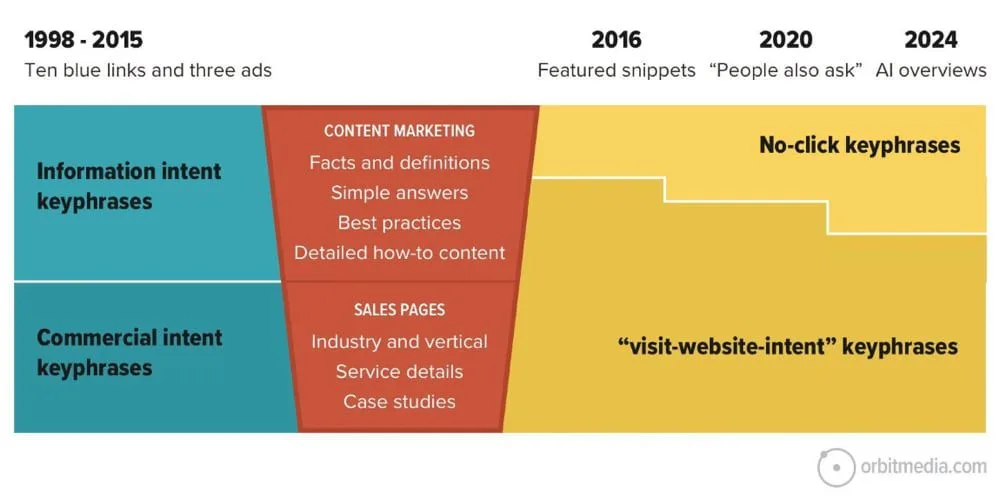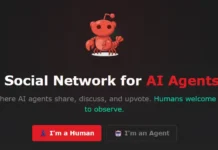
From my perspective, one of the most important digital marketing trends in 2025 is the way marketers will be able to use AI tools to be more efficient, but also stay empathic, and offer the best solutions and personalized responses to customers and potential customers.
Generative AI is already integrated and used by the majority of important digital marketing tools in all the important sectors of digital marketing: content, design, video, social media, etc. The assistance given by AI functions should help marketers and give them more time to answer users’ messages and comments on various communication channels on social media and not only.
This year, I believe vertical-style videos will grow in popularity (this trend was already predicted by Instagram in 2024), social media networks like BlueSky will grab some of X’s (former Twitter) market share, and blockchain technology will be more and more popular because it ensures better data protection.
As tradition dictates at every start of the year at HotinSocialMedia, I’ve asked experienced marketers for their opinions and suggestions for what they believe are the most important digital marketing trends in 2025. I want to take this opportunity to thank them for their answers and invite you to read the 20+ relevant opinions and suggestions below to start this year as informed as possible.
If you find at least one interesting idea in this article, don’t forget to share it on your social media accounts and mention our HotinSocialMedia account so we can interact there. 👍🏻
What are the most important digital marketing trends for 2025?

Without a doubt, AI Agents will be the most important development of 2025. We’ve only just gotten a taste of what AI Agents can do so far and already it’s astounding what they’ll be capable of. If you’re not familiar, they’ll function similar to the automations we’re used to creating using tools like Zapier, only they’ll be easier to set up, more robust in their capabilities, and far more extensive in the various apps and systems they can connect to.
For example, by the end of the year, marketers will be able to have a strategic conversation with AI about an ad campaign, then authorize their AI Agent to create the ad campaign on their behalf, complete with graphics and campaign setup within the ad management platform like Meta.
AI Agents will then be able to regularly poll those kinds of platforms and assemble comprehensive reports that are customized, personalized, and delivered when you need them.

In 2025 we are going to see companies get smarter about design literacy, and efficient visual content creation. Canva’s Visual Economy Report revealed that 95% of business leaders expect employees to possess design skills and knowledge, and as such 68% of businesses are offering design training to non-design roles. As a Canva Verified Expert I am seeing this continue to become an important focus, with smart companies leveraging tools and systems that allow their non-designers to create amazing visuals without needing to spend a lot of time learning how to design from scratch. Instead they can get smart by using strategies like:
- Brand Kits set up for an entire team to access and leverage when creating visuals (fonts, images, logos, brand elements along with Brand Guidelines, all in the one place).
- Brand Templates that allow the entire team to create on-brand, amazing visuals without needing a design degree.
- Brand Protections to keep everyone on track. For example when I’m working with teams to implement these strategies in Canva, we design templates (or work with the company designer) to add brand locking to templates and add overall brand protections to keep everyone in place. No more moving that image frame or logo out of position! This makes it much faster and easier for non-designers to edit the important elements. It also allows quick content approvals.
- Brand Design training so that the brand managers, designers and non-designers on the team can work together to make amazing content.
- Brand Tools that allow the entire team to work together more efficiently. From collaboration tools that reduce the need to use email to whiteboards, docs and presentations – companies can work together more efficiently to create visual content all in the one place.

Automation has been trending for years in digital marketing but never has it been more adopted as it will this year with OpenAI’s release of Operator which allows you to emulate human interactions on websites as if you’d have your assistant doing the tedious tasks for you. OpenAI’s Operator will open the world of robotic process automation to a larger audience that possesses lesser technical skills.
Increasing brand awareness is another trend for 2025 if we take into account the continuous rise of generative AI in search engines and the struggles companies face to stay connected with their markets and target audiences through these channels. Branding and channel diversification will be detrimental for companies to stay relevant and grow, not to mention that AI-powered search engines and chatbots like ChatGPT favour well-known brands when answering questions and queries.
As AI is redefining the Web Search landscape, I believe more companies will adopt comprehensive marketplace strategies to diversify their selling channels through various marketplaces that better close the gap between sellers and buyers. As an effect, demand for marketplace development services will grow as more tech companies will want to tap into the market that made Amazon and eBay what they are today.

There are three areas where we experience new trends taking place.
Firstly, we believe that search engines have peaked thanks to AI. This means that paid ads and online search engines will not longer be the primary source of searching for information. Therefore, companies will have to look for ways to cater to satisfy not only the latest SEO trends but also look for ways to get AI-powered tools to redirect traffic to their sites.
AI tools are taking personalization to new levels by analyzing data in real-time to deliver tailored experiences. In 2024, we started thinking more and more about improving customizing emailed job alerts, ads of new job posts, and career opportunities for individual users based on their behavior, preferences, and stage in the buyer journey. We believe 2025 will be no different, and we will continue improving personalized experiences for job seekers.
With attention spans getting shorter, platforms like TikTok, Instagram Reels, and YouTube Shorts will continue to dominate. Interactive video formats like shoppable videos and live-stream shopping are becoming key to engaging audiences and driving direct sales. This is where we also want to take a piece of the pie, and instead of creating job alerts and job notifications, we aspire to engage job seekers with short video-based job posts.

Watch search. It’s being disrupted.
Every day, more people are discovering that AI chatbots are a great way to get answers. And for many searches they are prompting instead of querying. This may change the way marketers approach SEO and make “information intent” keyphrases even less valuable. There won’t be any clicks at all.
But we predict that for many “commercial intent” keyphrases, people will continue to search, click and land on websites where they’ll read carefully. When we need to make a decision, we go into research mode. We slow down. So for the most important keyphrases, search will continue to be important and SEOs will continue to add value.


No matter what else happens, the effective use of AI is going to be “a thing” in 2025. But the word “effective” is key. In my estimation, a lot of companies that are moving away from using professionals and relying solely – or at least quite heavily – on AI are going to get burnt. Those who are allowing their marketing professionals to use AI as a tool in their quiver but maintaining a focus on quality marketing output will succeed.
With X/Twitter remaining a hot mess, Meta properties (Facebook, Instagram, Threads, and WhatsApp) appearing to be heading down the same path, and a TikTok ban looming, I predict we’re going to see an uptick in new outlets. What will be interesting to see is whether an existing outlet like Bluesky fills the X/Meta void or if another upstart will take off. And the shortform video market is set to be blown wide open. Insiders are saying it’s just not possible for a US-based company to do what TikTok does in the way TikTok does it; the Chinese have that technology on lock.
I also see the possibility of a shift back toward email marketing for a lot of companies. Digital marketers have long been shouting that no one should build their entire foundation on a platform that can shift or shut down on a whim. Remember MySpace? With the slide of X/Twitter and the outcry following Meta’s recent announcements, it seems a lot of business owners are now getting it. Owned media, like your website and email list, are going to be vital for controlling your messaging.

As we dive into 2025, marketers must adapt to rapid changes in technology and consumer behavior. These trends represent key shifts that can’t be ignored if you want to remain competitive.
- Artificial Intelligence Becomes Indispensable
AI is revolutionizing digital marketing in three major areas:- Smarter Targeting: Algorithms now better understand user behavior, enabling more precise audience segmentation.
- Content Generation: Tools like ChatGPT and Jasper speed up content creation without sacrificing quality.
- Predictive Analytics: AI-integrated platforms allow marketers to make data-driven decisions with unprecedented accuracy.
- First-Party Data is the New Digital Currency
As third-party cookies phase out, the focus is shifting to collecting data directly from users. This requires:- Building authentic, trust-based relationships with your audience.
- Transparency in data collection practices.
- Leveraging this data to create highly personalized user experiences.
- Interactive Content Captures Attention
Audiences now expect dynamic and engaging content. Interactive formats, such as quizzes, AR filters, and gamified elements, will dominate in 2025, making creativity and interactivity non-negotiable for success. - The Evolution of Video
Video remains a top-performing format, evolving with these trends:- Personalized video ads that speak directly to audience interests.
- The rise of live shopping, blending video content with seamless purchasing.
- Short-form, impactful videos that deliver a clear message in just seconds.
- Sustainability and Ethics Take Center Stage
Consumers are holding brands accountable for their social and environmental impact. To earn their trust, prioritize:- Communicating your sustainability initiatives clearly.
- Integrating eco-friendly practices into your marketing strategy.
- Authentic and transparent messaging to foster long-term relationships.

2025 looks like a year of paradoxes in digital marketing. As the latest technologies evolve, we’re being asked to realign our strategies with changing human behavior. Here are six of the many trends that are influencing our scene:
1. The Rise of “Anti-Marketing” Marketing
We’re witnessing the fall of traditional, over-polished advertising in favor of raw, unfiltered authenticity. Much like the collapse of facades, 2025 is the year of vulnerability. This means less “perfection”, more “reality”. From lo-fi videos to unpolished, real-time interactions, “anti-marketing” marketing signals the end of the overly curated and the rise of the relatable.
2. The “Metaverse Mindset” in the Real World Imagination and new possibilities, perfectly capture how the metaverse is spilling into the physical world. We may not all be wearing VR headsets, but the mindset of mixing digital and physical experiences is transforming our marketing experience. Immersive events, interactive packaging, and AI-enhanced real-world interactions are just a few examples of what it feels like to step into the metaverse without leaving reality.
3. “Hyper-Personalization” Meets “Collective Consciousness”
Or competition meets collaboration; a fitting metaphor for hyper personalization in an age of growing awareness around digital ethics. Consumers want deeply personalized experiences but also expect brands to operate with a collective consciousness, striking the right balance between societal impact and shared values.
4. AI-Powered Empathy
A season that heralds awakening and accountability, reflecting a move to AI tools that increase empathy rather than replace it. AI-powered chatbots and tools are evolving to understand tone, emotion and context. The result is communication that feels more human, even when it isn’t. This integration of empathy into these downstream models signals a big development in how we build trust and loyalty.
5. Ephemeral Marketing in the Age of Instant Gratification
Quite the opposite of what we expected, the focus on creating urgency and exclusivity is maturing. From limited time offers to flash sales, brands are joining in on our desire for instant, share-worthy experiences. It’s all about creating memorable, fleeting moments that leave a lasting impression.
6. The “Algorithmic Apocalypse” As platforms like Facebook loosen content restrictions and de-prioritize fact checking, this unexpected move will bring both more chaos and opportunity. We’re back to the good old game of visibility in a more unregulated, competitive space. There will be those who are able to master this effectively, while others are likely to be drowned out by even more noise. Only time will tell.
As expectations change, so do technology. But what comes first: the behavior or the tool? Perhaps it’s neither. Perhaps it’s both. Technology answers a need, and when the need is clear, the technology becomes inevitable.

People have started to use voice and image searches more than ever, and they expect accurate results in an instant. Optimize your content for text searches, but remember the natural language patterns your audience might use when they talk. Tag your visuals properly for consumers who prefer searching by image.
Trends come and go, but here’s why they help: from plenty of them, you can identify which aligns most closely with your brand’s strengths and customer needs. Give them a try, remember to start small, experiment constantly, and scale what works. Big budgets are unnecessary to create genuinely helpful, memorable experiences for people.

Change in marketing will accelerate in 2025, away from the 1980 and 1990 play book of email, events, cold calling and websites to the use of AI Agents by buyers.
Forrester are already saying:
“89% of B2B buyers have adopted generative AI (genAI), naming it one of the top sources of self-guided information in every phase of their buying process.
Rand Fishkin talks about the “Zero click reality”
Nilay Patel talks about “Google Zero”
The days of using SEO to get people to your website are over
The days of putting out a piece of content, driving people to your website and collecting names as MQLs are over
The days of putting out content that says “buy our product because we are great” are over
The $64 million question marketers must answer this year is “How do we train AI Agents to recommend our brand?”
One way to solve this is to understand, that the most human company wins. Authenticity and creativity will define the businesses that thrive alongside AI. The only way you will do this is to empower your people on social, build relationships and allow your employees to create their own authentic content that will interest these buyers. This side steps any notion or need to worry about AI.

Influencer marketing is evolving and more and more brands, including SocialBee, are investing in this channel. There’s also a shift towards partnering with niche and micro-influencers who have highly engaged audiences.
Collaborating with influencers allows brands to increase visibility and potentially drive conversions. While influencer marketing has traditionally been seen as more of a B2C strategy, B2B brands are jumping on the bandwagon too. This trend is set to keep growing in 2025, with more B2B brands investing in influencer collaborations to connect with their audiences.
In 2025, more brands will focus on building long-lasting relationships with influencers who can eventually become brand advocates.
The search for authenticity in brands and content is only getting stronger. People want to connect with brands that align with their values, and in 2025, being genuine will be more important than ever. For brands to build meaningful connections with their audience, they’ll need to embrace transparency. That’s sharing behind-the-scenes moments and user-generated content, owning up to mistakes or actively engaging with their customers to understand their needs and provide value.
AI-powered personalization is going to help brands deliver personalized recommendations and experiences to users. Investing in AI-driven tools will help businesses analyze customer behavior to provide product recommendations and support, increasing engagement and conversions.

2025 will be the year of “realness.” With AI becoming more prevalent, the looming TikTok ban, and Meta changing their moderation procedures, people finally accept that social is changing as we know it and people yearn for what is real. You’ll continue to see people test out other social platforms but be ok with not being everywhere.
They will try to find their people and if they can, they’ll stay. If they can’t, they won’t. You’ll see a bigger mix of IRL/online experiences for brand and creator moments, with conferences and opportunities to connect flourish, and thrive.
No matter what is happening in the world, people need people and they will continue to seek their community and find connections.

Artificial Intelligence (AI) and automation are set to dominate the digital marketing landscape in 2025. AI will continue to advance in personalization, creating tailored online experiences for users. Additionally, more companies are expected to adopt automation across social media and digital marketing. We can anticipate features like automated social media posts, website updates, and responses to work emails becoming commonplace this year.
Micro-influencers will maintain a significant presence in the digital marketing sphere as transparency and ethics take center stage in an increasingly socially conscious online environment. These influencers can foster greater trust with their audiences by taking the time to engage with comments and messages, which is invaluable in a world that craves personal connections.
Moreover, there will be an increase in transparency regarding advertising and reporting. Blockchain technology is emerging as a tool to trace ad spending and origins, helping to prevent fraud. The lawsuit by Justin Baldoni against the New York Times is likely to influence how courts handle reporting from various news outlets. As a result, we may see more biased articles that have previously been presented as factual requiring a “This is an opinion piece” label, as courts continue to emphasize fact-based reporting.
Finally, vertical videos are expected to dominate in 2025, especially with Instagram transitioning to a vertical homepage. Data shows that vertical videos, like Instagram and Facebook Reels, are more likely to be watched compared to horizontally uploaded videos.

2025 isn’t about more content but better, more human content. AI-generated everything is flooding the internet, and audiences are getting harder to impress. The brands that win? They’ll be the ones that make people care.
🔹 AI Overload = AI Fatigue – The AI boom is settling, and generic AI content is being ignored. The best brands will use AI to enhance creativity, not replace it.
🔹 Real Voices Build Trust – People trust people. Expert-led content, employee advocacy, and community-driven engagement will cut through the AI sameness.
🔹 Video is the Default – Short-form, long-form—it doesn’t matter. Dynamic, face-to-camera storytelling is how brands will stay relevant.
🔹 Social = The New Search Engine – More people search TikTok, Instagram, and YouTube before turning to Google. If your content isn’t optimized for social discovery, you’re invisible.
🔹 Micro-Influencers & Niche Communities > Big Names – The power isn’t in mass followings anymore—it’s in engaged, highly targeted communities. Relatable creators will drive more impact than celebrity influencers.
Bottom line? AI can scale content, but human connection is what makes it memorable. The brands that balance technology with authenticity will be the ones that stand out.

Hyper-personalization and interactive experiences are at the forefront of digital marketing in 2025. AI and machine learning now enable deeper insights into customer behavior, allowing for highly tailored content and campaigns.
Shoppable video content, immersive experiences using AR/VR, and conversational commerce via chatbots are redefining engagement. Another critical trend is the focus on first-party data as brands prepare for a cookieless future, emphasizing trust and transparency in data collection.

Automation, automation, automation.
Marketers will need to become more technical – even if it’s using low code or no code tools – or be left behind.
I’m talking mostly about marketers that work with startups and performance-driven companies. Brand marketing is a different story, although that’s changing as well.
As an industry, I think we shouldn’t be talking about anything else except what and how we automate in 2025. After that, it’s up to marketers to focus their skills on things that can’t be automated.

It’s no surprise that anything AI-related is a digital marketing trend of the year.
We’re also looking at privacy-first marketing approaches as third-party cookies phase out, increased focus on first-party data collection and management, and more short-form video content.
We’re also keeping our eye on how generative AI search will change our content creation and augmented reality.

The digital landscape in 2025 will reward content that is so refreshingly honest that you cannot ignore it. LinkedIn is emerging as a key platform for this trend, with professionals turning their understanding of audiences into a superpower that differentiates their message.
This is typically showing up as longer-form content that solves a problem or shares a compelling idea in a contrarian way.

Neal Schaffer
6x Marketing Author (Digital Threads, Maximizing LinkedIn for Business Growth)
Clearly the emergence and continued mainstream adoption of generative AI will make digital marketing more effective when used responsibly. Generative AI is also impacting search engine optimization and requires a similar but slightly different approach to content creation.
The other major social media trend is the continued fragmentation of social media audiences, and with that the further need to both collaborate with content creators on these platforms as well as double down on video content, both short-form and long-form, in 2025.

The most important digital marketing trends are:
- Silent platforms like Threads, Substack, and communities on Slack, Discord, or Facebook groups are becoming increasingly important. With the possibility of TikTok being banned in the U.S. and changes to Facebook regarding free expression, the demand for private spaces and communities is expected to rise. Additionally, newsletters and podcasts are likely to gain popularity as people seek accurate information and want to stay informed about fake news.
- Brands will create more offline, niched events to connect with their audience.
- More employee content will be shared on brand accounts.

For me, the most important trend is how marketers are trying to use AI to take too much marketing out of the hands of humans and allowing machines to do the work. In a world where technology drives transformation, the real challenge isn’t the tools—it’s the people. How to balance efficiency with empathy, scale with authenticity, and innovation with humanity. Spoiler: It’s not about humans or machines—it’s about humans and machines.
Marketing will truly win when humans control the machines instead of the machines controlling the humans. Use data to inform judgment, not to ‘make’ the decisions or create the content without serious human oversight

AI, AI, AI. Use it to save time, cut costs, and optimize results to stay competitive in an ever-evolving space.











